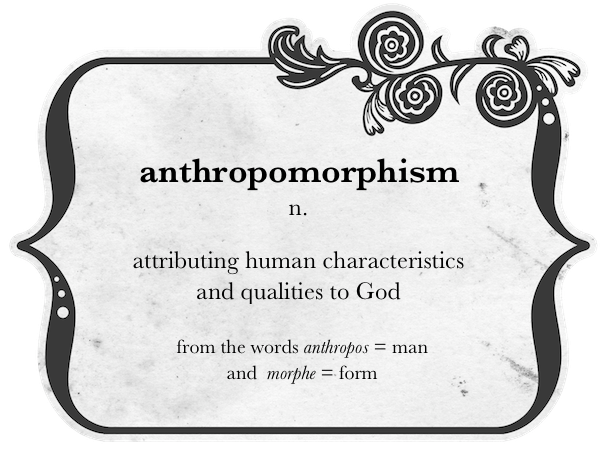Anthropomorphism. Say that 3 times, haha.
Here we see another grace of God given to undeserving people like us. God is a spirit (Jn. 4:4) and on top of that he is, in in so many ways, completely different from us. The finite cannot understand the infinite (Is. 55:8). So God condescends to explain his nature and character in terms that we can grasp.
He is described as having eyes, hands, a mouth, ears, feet, a back, fingers, arms, hands and a heart. These descriptions are used to help us see and understand his love, protection, justice and care for us as well as his wrath and judgment of sin.
Other times he is described as having human emotions like, jealousy, kindness, mercy. We see him described as feeling pity, anger, love and even laughter (Ps. 2:4)
All of these anthropomorphisms are there to help us better understand the nature of our invisible God.
God takes into account our inherent limitations and basic ignorance. He graciously describes himself as having human emotions, thoughts, passions and human anatomy in order to communicate things to us for which otherwise we would have no frame of reference.
- LeRoy Wilson
How should this affect us?
1. It should evoke love in us
The fact that our God, whom no one can see and live, has taken our limitations into consideration and made himself known to us is amazing grace. It is one of the many ways we see his love for us and in return we should love him.
2. It should make us read God word’s more earnestly
God has gone through great lengths to make certain parts of himself known to us and so we need to make an effort to know him. We need to tear the scriptures apart looking for and expecting to find the God who made and saved us.
3. It should move us to tell others
We should be eager to tell others about God and his gospel in ways they can understand just as God has revealed himself to us in terms that we understand. We must let people know that God can be known.
